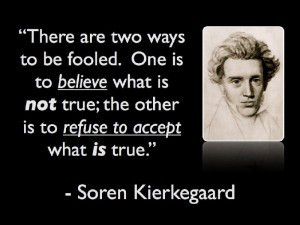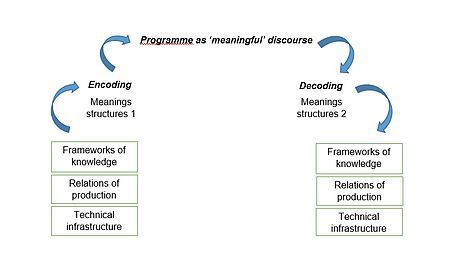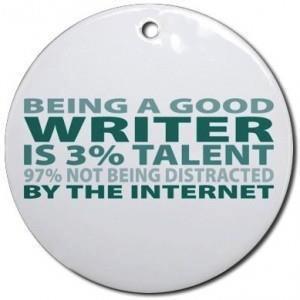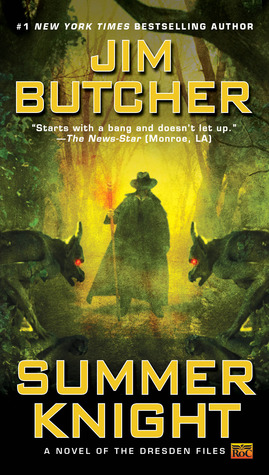Tyson Adams's Blog, page 56
October 26, 2016
Book review: Killfile by Christopher Farnsworth
 Killfile by Christopher Farnsworth
Killfile by Christopher Farnsworth
My rating: 5 of 5 stars
There are times that I’m glad people can’t read my mind: I’d hate to have someone else humming The Proclaimers.
John Smith is a specialist who helps wealthy clients with tricky problems. He has a talent for hostage negotiations, corporate espionage, and gleaning people’s deepest secrets thanks to his ability to read minds. Who’d have thought that reading people’s minds would turn his latest job into a death sentence.
Killfile is the first novel I’ve read from Christopher Farnsworth since his excellent Nathaniel Cade series went on hiatus four years ago. I read the Nathaniel Cade series back to back and loved every second of those supernatural thrillers. Killfile was similarly enjoyable with the paranormal thriller element pitched nicely into the realms of corporate espionage and CIA interrogation programs.
Also, as a scientific skeptic (i.e. scientist who hears all the kooky claims and demands evidence) it is always fun to read the conspiracy claims in a more rational format. Dusting off MKUltra and utilising it as a plot point in fiction rather than an outlandish conspiracy tickles me in all the right ways.
Chris’ novels continue to be highly enjoyable reads.
Tagged: Book review, Book reviews, Christopher Farnsworth, CIA, Killfile, Mind reading, MKUltra, Nathaniel Cade, Paranormal, Paranormal thriller, Reading, Right What You No, Supernatural, Thriller, Tyson Adams

October 16, 2016
Rise of the Sophists

Surprisingly this is not a post about a new Terminator movie. It isn’t even a post about the rise of Donald Trump and Pauline Hanson; but let’s mention them for the bonus clicks. This post is actually a short essay I wrote last year as part of a philosophy course I did on Soren Kierkegaard. As you will see there is quite a bit of relevance to the current political and media climate, although looking back as far as Socrates reveals that not much has changed: sophists have undue influence on our society.
What did Kierkegaard learn from his study of Socrates?
Kierkegaard saw parallels between his time and Socrates’ time. Once again there was a rise of Sophists in society, people who knew very little but pretended they did. While it could be argued that the Socratic Method is always relevant in society, Kierkegaard came to see certain aspects of Socrates differently to his peers. He was interested in using the negative as well as drawing people into argument by asking questions from feigned ignorance. These tactics could be used to expose those who were lacking knowledge or understanding.
Kierkegaard expanded upon his interpretation of the Socratic Method and has subsequently influenced many, both in the field of philosophy and thought, as well as wider society. Notably his ideas have influenced things like existentialism and post-modernism, which have influence into such diverse areas as the arts and science. But Kierkegaard was a precursor to modern philosophical movements, as he wasn’t trying to educate or enlighten, but rather stimulate and encourage people to look for the truth.
There is a downside to Kierkegaard’s influence on society. In our modern age we have seen the rise of those who would use Kierkegaard’s negative and questioning as a tool, rather than for helping others find the truth, but for harassment. While the idea behind aporia and maeuetics is to question what we and others know, there is a point at which this stops being about questioning knowledge for understanding and starts being about someone just trying to annoy others.
Obviously this comes down to the intent of the person: are they trying to help others understand, or understand themselves; or are they more interested in having an argument, or annoying someone. But is it subtler? Is it a progression whereby someone has engaged in discussion only to run up against something they disagree with – due to whatever personal bias – and thus use the questioning as an attack or avenue to annoy others? Regardless, those who are trying to annoy are not following the intent of Kierkegaard, nor Socrates, and will miss the essence and benefits of aporia and maeuetics.
Why is this connection between Socrates and Kierkegaard still relevant in the world today?
Much like the parallels Kierkegaard saw between his time and Socrates’ time, there exists a similar parallel today. Once again in the modern age we see the rise of the Sophists. They are our elected officials, they are our media, and through technology they have the ability to reach more people and influence the world.
With more information available more easily than ever, people have come to receive that information in bite sized pieces. Often a headline – which may have been designed more for attracting attention than providing information – will be as much as a person will read about a topic. Our leaders and elected officials are reducing their policy statements to sound bites that can be easily remembered. And while we have this overly simplistic form or information presented to us, we are seeing less critical assessment of the information.
Kierkegaard was correct to look at the rise of Sophists in his time and act to apply Socratic methods to their arguments. By taking the approach of “knowing nothing” and questioning the person presenting information, it can be revealed how little the person actually knows. This is something that our media, and we, are failing to do. By taking the negative position it is possible to force the Sophist to explain themselves.
The most interesting aspect of Kierkegaard’s connection with Socrates is how comedians are applying it today. Irony was something Kierkegaard regarded as an invaluable tool. Today we see comedians such as John Oliver using irony – and other comedic devices – to dissect topics and arguments in the public space. It could be said that the modern Socrates or Kierkegaard comes in the form of the satirist news programs. Their viewers are noted to be better informed about news topics, and this comes from the use of Socratic tools.
A little more on Kierkegaard from The School of Life:
Tagged: Donald Trump, John Oliver, Last Week Tonight, Media, My Writing, News, News coverage, Pauline Hanson, Philosophy, Philosophy essay, Right What You No, Short essay, Socrates, Socratic method, Sophistry, Sophists, Soren Kierkegaard, The Daily Show, The School of Life, Tyson Adams

October 13, 2016
Book Review: Cry Wolf by Patricia Briggs
 Cry Wolf by Patricia Briggs
Cry Wolf by Patricia Briggs
My rating: 4 of 5 stars
Do werewolves smell of wet dog when they are in human form?
Anna is having a tough week. After breaking up with her old pack she moves to the middle of nowhere with a guy/wolf – Charles – whom she has only just met. Then when a rogue wolf starts attacking people, she has to help Charles track it down before it exposes the pack. But is it really a wolf?
Cry Wolf is another werewolf series from Patricia Briggs set in the same universe as the Mercy Thompson series. After being won over by the Mercy series, I decided to give Alpha and Omega series a read. So I started with the Alpha and Omega novella and I am still scratching my head as to why it wasn’t just included as the first few chapters of this novel. If you intend on reading Cry Wolf, do read Alpha and Omega first. Or don’t: I’m not your mother.
This was quite a hard book to rate/review. It was an enjoyable read, but the breaking of the story between the main novel and the introductory novella throws out the narrative a bit. The romance between an abuse survivor and a really old life-long bachelor as the central plot is interesting, but it does tend to wander as the other events of the novel occur. At times I felt the story was just happening with no real point or destination in mind, but it felt like things tied together in the end. And for a Patricia Briggs story set in the same universe as the Mercy Thompson series it is going to draw comparisons. Whilst I’d recommend this book (and novella), it isn’t as good as Mercy and her adventures.
My recommendation is that you’ll enjoy reading this to sate your hunger for werewolf stories when you run out of Mercy Thompson novels to devour.
Tagged: Alpha and Omega, Book review, Book reviews, Mercy Thompson, Paranormal, Patricia Briggs, Reading, Right What You No, Tyson Adams, Werewolf, Werewolves

October 12, 2016
Book vs Movie: The Crow – What’s the Difference?
Is The Crow one of your favourite cult movies? Well, it should be. CineFix discuss the movie and the comic it was based upon in this month’s What’s the Difference?
The Crow remains one of my favourite films, which probably says a lot about my teenage years. The comic it is based upon, however, was not a book I enjoyed reading.
As the video mentions, author James O’Barr wrote the comic as a way of coping with the death of his girlfriend at the hands of a drunk driver. The book is bleak, and when not being directly about revenge, it is darkly introspective and depressing. The main character is clearly a form of Super Id – drawn as lean, muscular, 6’5″, invulnerable, unstoppable – and acts as a form of cathartic revenge against a cruel world. That might be fine for a Steven Seagal movie, but there’s a reason why you had to look up who Seagal was just now.
The movie is an example of a great adaptation, especially considering the film couldn’t be completed as intended after the unfortunate death of Brandon Lee. They managed to capture so much of the tone and character of the book whilst not making a movie that would have you slitting your wrists halfway through. The video refers to this as Hollywoodising, but I think they are being too harsh. The story was a revenge tale, but the movie manages to create an actual character arc and have more compelling bad guys. Case in point: Michael Wincott’s Top Dollar. The movie also trims off the bleak stuff in favour of a more cohesive narrative. This is why I had a poster from the movie on my wall and gave the comic away.
Tagged: Book to film, Book to movie, Book vs Movie, Brandon Lee, CineFix, Comic, Comic books, Comics, James O'Barr, Right What You No, The Crow, Tyson Adams, What's the difference

October 8, 2016
Friday Funny!
October 6, 2016
Do we consume media?

It is common for us to refer to books we read, movies and TV shows we watch, and whatever it is we do with news, in terms of consumption. But is that accurate? PBS Ideas Channel has an interesting video on this topic.
I like the idea of decoding as an explanation for how we interact with media. It certainly offers a better explanation for how some people will interpret something completely differently than if they were to merely consume it. Decoding also makes me feel much better about writing violent stories, and that is the important thing here: justifying stuff I already like.
Tagged: Encoding/Decoding meaning, Encoding/Decoding Media, Interpreting meaning in media, PBS Ideas Channel, Right What You No, Stuart Hall, Tyson Adams, Video

October 4, 2016
What are some great books that will teach me to be a creative writer?

I love creative writing and I’m good at university dissertations, but when I try to write a story, I struggle and the writing is often awkward. Yet I love doing it. What pratical guides or reading list would you recommend for people who wish to masted the art of writing and creative writing?
Creative writing is as much about practice as it is about any advice you can read in a book. Part of that practice is writing, part of it is editing your own work, and part of it is reading to see how others construct their prose.
Essentially, if you already know the mechanics of how to write, then the part that is missing is the hours and hours of practice and analysis of that practice.
That said, there are plenty of manuals on style and grammar that would be helpful. E.g. Strunk and White’s Elements of Style is regarded as a classic of writing.
I personally think Stephen King’s On Writing is a must read for any author.
This post originally appeared on Quora.
Tagged: Quora, Quora answers, Right What You No, Stephen King, Stephen King On Writing, Strunk and White, The Elements of Style, Tyson Adams, Why are you taking advice from me?, Writing

September 30, 2016
Brooding over the city

Attn: if anyone knows the creator of this – the logo is unfamiliar to me – I’d like to link to the original.
Tagged: Brooding superhero, Funny, Humor, Humour, Queue of brooding superheroes, Right What You No, Superhero, Superheroes, Tyson Adams

September 28, 2016
Book Review: Summer Knight by Jim Butcher
 Summer Knight by Jim Butcher
Summer Knight by Jim Butcher
My rating: 4 of 5 stars
If blasting rods and staffs are standard wizard fare, what do they use for euphemisms?
Harry Dresden is having a bad day, or is that week, month, and year? His girlfriend has been semi-turned into a vampire, it’s raining frogs in the park, a ghoul is trying to assassinate him, the vampire Red Court want to torture him to death, the Wizarding White Council are tempted to let the vampires have Harry, the Winter Court of faeries want him to investigate a murder, he has no money, and his house is a mess. Oh, and a war is about to start if Harry can’t find the killer; so there’s that as well.
This is my first foray into Jim Butcher’s much vaunted Dresden Files series. Summer Knight indicates that there is a lot to like about this Harry’s world. The story could be described as an urban fantasy thriller: with thriller being a selling point for me. Butcher doesn’t shy away from piling on the hardships for Harry to overcome, and keeps the action coming thick and fast. I’m honestly wondering why I took so long to dive into this series that has been repeatedly recommended to me.
Tagged: Book review, Book reviews, Dresden Files, Harry Dresden, Jim Butcher, Right What You No, Summer Knight, The Dresden Files, Thriller, Tyson Adams, Urban fantasy, Urban fantasy thriller, Urban paranormal

September 26, 2016
Banned Books Week 2016

Source: ALA.org
Banned Books Week is an American event, but us Aussies have been known to ban books for silly reasons as well. As such, I think this should be a global event. So read something that some overbearing busybody decided was offensive today.
Tagged: Banned, Banned books, Banned books week, Censorship, Reading, Right What You No, Tyson Adams





